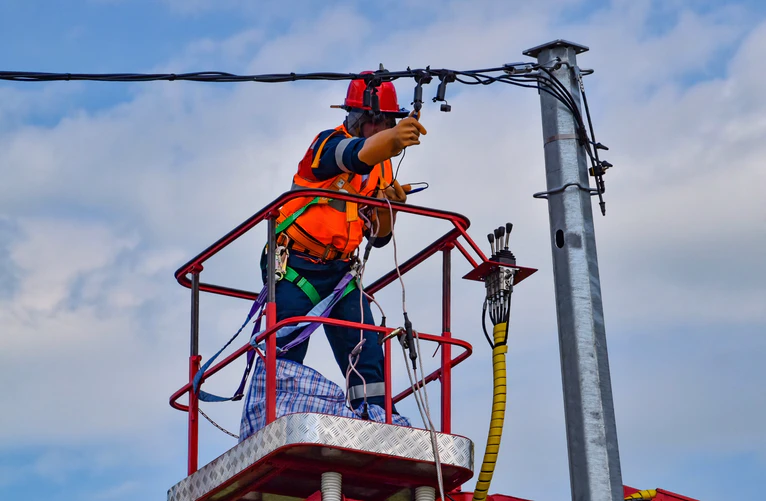Business Guides
3 Reasons Why Electrical Safety Precautions Are Needed

Whether in the workplace or at home, electrical safety is vital if you want to stay alive. Electrical hazards are not something that everyone knows about. Most companies take this very seriously, and it’s among their top priority because the dangers that exist when handling electricity are quite a number.
Electrical fatalities at private residences account for 30% of all fatalities. In the industries and commercial premises, it accounts for another 30%. This is more than any other area where electrical fatalities occur.
Electrical safety around the workplace and home should be a top priority at all times. Below are the safety precautions you should take when handling electricity and why you need to take them.
Electrical Safety Precautions You Should Follow
- Ensure you avoid water while working with electricity. Wet hand and electrical equipment and circuits do not mix. You will end up with a nasty case of “electrical shock.” Water increases the electrical current’s conductivity.
- Do not use equipment that has a frayed power cord, broken plugs, or damaged insulation. The exposed live wire is an electrical hazard.
- Ensure all the tools you use are insulated. You should also have the right attire for handling electricity safety clothes, insulated gloves, and boots or shoes with insulated soles.
- Exposed energized parts and any unguarded electrical equipment are also hazardous, and they may get energized unexpectedly. Any equipment of that nature should have signs such as “DANGER” to warn anyone of the impending risk.
- When working with electricity home or work, you should switch it off from the mains. It’s also advisable to place a sign on the main switch service panel. This will inform anyone who wants to turn on the main switch not to.
- At no particular instance should one use a steel or aluminum ladder if working on electrical equipment high off the ground. The electrical shock risk is high, and the electrical surge will ground you while the current goes through your body. You should instead use a wood, fiberglass, or bamboo ladder.
- You should never try to fix, or repair energized equipment. Before anything, check if they are de-energized using a tester. That way, you can gauge if their electrical currents are flowing through the wires.
Why You Need Electrical Safety
If mishandled, electricity can be a danger to property, leading to its destruction, and more so to your own body and health in general. Below are the reasons why you need to observe electrical safety precautions at all times.
Electric Shock Can Cause Cardiac Arrest
When a current of 50 mA passes through your heart, you may experience cardiac arrest. Electrical pulses control your heartbeat rhythm; that way, the muscles can pump blood through your body.
A current from outside, if high enough, will disrupt these electrical pulses and interrupt the rhythm of the heartbeat. The irregular heartbeat, arrhythmia, can become complete disorganization of the heartbeat rhythm and is called ventricular fibrillation.
In the occurrence of ventricular fibrillation, the heart will cease to pump blood, and no circulation will take place. Without using a defibrillator, anyone who experiences this problem resulting from an electrical shock will lose consciousness and die. Arrhythmia can take place during the shock or hours after it.
Electric Shock Can Cause Severe Burns to Tissues and Organs
If the current through your body surpasses 100mA, it will leave marks on the skin contact point. If it is above 10,000 mA, you will suffer from severe burns, leading to amputation of the affected limbs.
Electricity burns are easy to recognize as they appear similar to those gotten from prolonged contact with heat. Others may seem harmless, but in the real sense, they are far from it. Small charred crater-like burns on the skin indicated a more internal severe burn.
Electrical burns are more common to internal organs than on skin. When you experience electrical shock, the body resists the current passing through it, and there is heat generated. This heat causes internal burns, and in most cases, the internal injuries are more severe than external ones.
Internal burns have serious effects on the body. These include:
- Amputation
- Scarring
- Loss of sensation
- Loss of function
- Death
The United States registers about 1000 deaths annually from electrical injuries alone, internal or external.
Electric Shock Can Affect your Nervous System
The nerve in the human body stands very little chance against electrical current. When current passes through them, you experience several sensations, including pain, numbness, tingling, weakness, or difficulty moving the electrocuted limb. These effects can be temporary and end with time or may be permanent.
Electrical current may also affect the Central Nervous System, CNS. In the event of an electrical shock, the victim may have seizures, respiratory problems, or amnesia. The long-term damage to the brain and nerves depends on the level of the injuries. They may appear months after experiencing the electrical shock.
Final Thoughts
Electricity precautions should be treated with the seriousness they deserve. Failure to which the effects of electrical shock to the body may be detrimental. Getting physically hurt or, worse still, losing your life from electrical accidents are reasons enough to get conversant with electricity hazards and precautions, especially at home or in the workplace.











